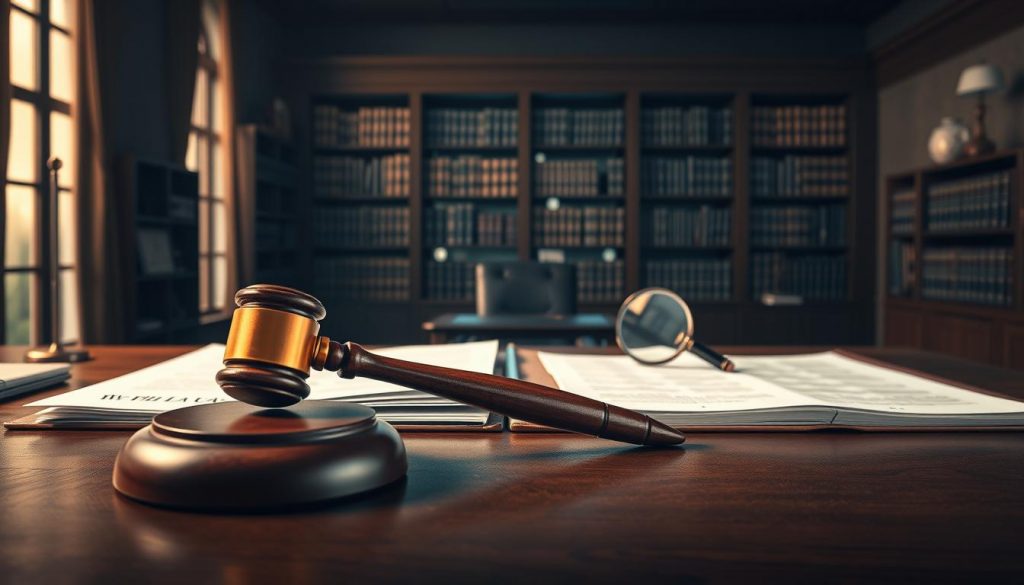When a loved one passes away, the role of the executor becomes crucial in managing the estate according to the deceased’s wishes and legal requirements. Beneficiaries often wonder about their rights and whether the executor has the power to take everything.
We understand your concerns and are here to guide you through the probate process and the responsibilities of the executor. The executor’s role is to administer the estate, ensuring that assets are distributed as specified in the will.
It’s natural to have questions about the executor’s powers and your rights as a beneficiary. In this article, we will explore the extent of an executor’s authority and provide clarity on what you can expect during the probate process.
Key Takeaways
- Understanding the role and responsibilities of an executor in managing the estate.
- Knowing your rights as a beneficiary during the probate process.
- The limitations on an executor’s power to distribute assets.
- The importance of seeking professional advice when dealing with complex estates.
- Steps to take if you suspect an executor is not acting in accordance with the will.
Understanding the Role of an Executor
When someone passes away, their estate is managed by a person known as an executor, who plays a crucial role in ensuring the deceased’s wishes are carried out. The executor’s role is multifaceted, involving legal, financial, and administrative responsibilities.
Definition of an Executor
An executor is an individual or institution appointed by the deceased in their will to manage the estate. This role involves significant fiduciary duties, meaning the executor must act in the best interests of the estate and its beneficiaries. The executor is responsible for carrying out the instructions in the will, which includes managing assets, paying debts, and distributing the remaining estate to beneficiaries.
Duties and Responsibilities
The duties of an executor are varied and complex. They include:
- Identifying and collecting the assets of the estate
- Paying debts, taxes, and other liabilities
- Distributing the remaining assets according to the will
- Managing any ongoing legal or financial matters related to the estate
For a detailed understanding of the executor’s role and their legal obligations, it’s essential to consider the legal framework surrounding wills and estates. Beneficiaries also have rights that are protected by law, as outlined in resources such as Understanding Your Rights as a Beneficiary of a.
| Duty | Description |
|---|---|
| Asset Identification | Gathering all assets, including property, bank accounts, and personal belongings. |
| Debt Settlement | Paying off debts, including credit cards, loans, and taxes. |
| Estate Distribution | Distributing the remaining assets to beneficiaries as per the will. |

The role of an executor is not only to follow the instructions in the will but also to ensure that all legal and financial matters are handled appropriately. This requires a thorough understanding of the executor’s duties and the legal rights that govern their actions.
Legal Framework Surrounding Wills
In the UK, the legal framework surrounding wills and estates is designed to ensure that the deceased’s wishes are respected while also protecting the rights of beneficiaries. This framework is crucial for understanding the role of executors and the process of estate distribution.
Key Legislation in the UK
The legal landscape governing wills and estates in the UK is shaped by several key pieces of legislation. These include:
- The Wills Act 1837, which sets out the formal requirements for making a valid will.
- The Administration of Estates Act 1925, which governs the administration of estates.
- The Inheritance and Trustees’ Powers Act 2014, which amends certain aspects of the law relating to inheritance.
These Acts collectively provide the legal foundation for the creation, administration, and distribution of estates.
“The law relating to wills and estates is complex and multifaceted, requiring a comprehensive understanding of the relevant legislation and procedures to ensure that the deceased’s wishes are carried out effectively.”
Importance of Probate
Probate is a critical process in the administration of an estate. It involves verifying the validity of the will and granting the executor the authority to manage and distribute the estate according to the deceased’s wishes.
| Aspect of Probate | Description |
|---|---|
| Validation of the Will | Confirming that the will is genuine and reflects the deceased’s intentions. |
| Granting Authority | Issuing a grant of probate to the executor, authorizing them to administer the estate. |
| Estate Administration | Managing the estate’s assets, paying debts, and distributing the remaining assets to beneficiaries. |
The probate process is essential for ensuring that the estate is administered correctly and that the legal rights of the executor are exercised appropriately.

Can an Executor Inherit from the Estate?
In the UK, the laws surrounding wills and estates raise an important question: can an executor inherit from the estate they’re managing? The answer lies in understanding the role of an executor and the legal framework that governs inheritances.
Initial Considerations
An executor is typically named by the deceased to manage their estate according to their wishes as outlined in the will. It’s common for the deceased to name a beneficiary as the executor, often a spouse, child, or other close relative. The key consideration is whether the executor is also a beneficiary.
Being an executor does not preclude someone from being a beneficiary. In fact, it’s a common practice for the executor to also be a beneficiary of the estate. However, it’s crucial to understand that the executor’s role is to act in the best interest of the estate and all its beneficiaries, not just their own.

Legal Limitations
While an executor can be a beneficiary, there are legal limitations to prevent abuse of their position. For instance, an executor cannot unilaterally decide to take assets that are not bequeathed to them. Their actions are governed by the terms of the will and the laws of the land, including the duty to act impartially and in good faith.
The law also provides remedies for beneficiaries who suspect misconduct by an executor. Beneficiaries can seek legal advice if they believe the executor is not acting in accordance with the will or is unfairly benefiting themselves at the expense of others.
Understanding these legal limitations is crucial for both executors and beneficiaries to ensure that the estate is managed fairly and according to the deceased’s wishes.
Executor’s Rights and Authorities
As we navigate the complexities of estate management, understanding the executor’s rights and authorities becomes crucial. Executors are entrusted with significant responsibilities, and their rights are designed to facilitate the effective administration of the estate.
Accessing Assets
One of the primary rights of an executor is the ability to access the assets of the estate. This right is essential for several reasons:
- To gather and manage the estate’s assets.
- To pay off debts and liabilities.
- To distribute the remaining assets according to the will.
Executors must act in the best interest of the estate and its beneficiaries, ensuring that assets are handled prudently. For instance, if the estate includes a property, the executor has the authority to manage it, which may involve deciding whether to sell the property or maintain it until distribution.

Distribution Powers
The executor’s distribution powers are guided by the instructions in the will. They must:
- Interpret the will accurately to understand the deceased’s wishes.
- Ensure that distributions are made to the correct beneficiaries.
- Manage any tax implications arising from the distribution.
To illustrate the distribution process, consider the following table outlining the typical steps involved:
| Step | Description | Responsibility |
|---|---|---|
| 1 | Gathering Assets | Executor |
| 2 | Paying Debts | Executor |
| 3 | Distributing Assets | Executor |
| 4 | Managing Tax Implications | Executor/Financial Advisor |
In conclusion, the executor’s rights and authorities are pivotal in ensuring the estate is managed and distributed according to the deceased’s wishes. By understanding these rights, executors can carry out their duties effectively, maintaining the integrity of the estate administration process.
What Happens to Debts and Liabilities?
Managing the deceased’s estate involves dealing with outstanding debts and liabilities. This is a critical aspect of the executor’s role, ensuring that the estate is settled in accordance with legal requirements.
Handling Outstanding Debts
When a person passes away, their debts do not disappear. Instead, these debts become the responsibility of the estate. Executors must identify all creditors and pay off valid debts using the estate’s assets. This process involves:
- Identifying all debts, including credit cards, loans, and utility bills.
- Verifying the validity of each debt.
- Prioritizing debts according to legal guidelines.
- Paying off debts using the estate’s assets.
It’s essential for executors to be thorough in their assessment to avoid personal liability for any unpaid debts. For more detailed guidance on executor responsibilities, you can visit https://www.legalwills.ca/executor_responsibilities.
Executor’s Responsibilities
Executors have a fiduciary duty to manage the estate’s debts effectively. This includes:
| Responsibility | Description |
|---|---|
| Debt Identification | Locating and identifying all debts of the deceased. |
| Debt Validation | Verifying the accuracy and validity of claimed debts. |
| Payment of Debts | Paying off debts in the correct order as dictated by law. |
Executors must also keep beneficiaries informed about the progress of debt settlement. Transparency is key to maintaining trust and ensuring a smooth estate settlement process.

Family Provision Claims and Rights
In the UK, the law provides a mechanism for certain family members and dependents to claim a share of the deceased’s estate, known as family provision claims. This legal framework is designed to ensure that those who were financially dependent on the deceased or have a moral claim to the estate are not left without adequate support.

What is a Family Provision Claim?
A family provision claim is a legal claim made by an individual who believes they have not been adequately provided for in the deceased’s will or, in the absence of a will, under the rules of intestacy. We understand that navigating these claims can be complex, but it’s essential to recognise that they are an important aspect of estate distribution.
For a successful claim, the applicant must demonstrate that the deceased’s estate distribution does not make reasonable provision for them. The court’s decision is based on various factors, including the applicant’s financial needs, their relationship with the deceased, and any other relevant circumstances.
Eligible Claimants
Not everyone can make a family provision claim. The law specifies certain categories of individuals who are eligible to make such claims. These typically include:
- A spouse or civil partner of the deceased
- A former spouse or civil partner who has not remarried or entered into a new civil partnership
- A child of the deceased
- Someone treated by the deceased as a child of the family
- Any other person who was being maintained by the deceased immediately before their death
For those considering making a claim, it’s crucial to seek legal advice to understand their eligibility and the potential outcomes. You can find more information on estate planning and related legal matters on our website, such as on our page about estate planning in Sea Mills.
Types of Assets and Their Treatment
Different assets are handled in distinct ways during the estate settlement process. Understanding these differences is crucial for executors and beneficiaries alike.
Real Estate and Property
Real estate and property are often significant components of an estate. The treatment of these assets depends on whether they are held jointly or solely in the deceased’s name. Jointly owned property typically passes to the surviving owner, while solely owned property is distributed according to the will or intestacy rules.
Bank Accounts and Investments
Bank accounts and investments are financial assets that require careful handling. Executors must identify all accounts, including those with named beneficiaries, such as life insurance policies or retirement accounts, which pass directly to the beneficiaries. Other accounts are distributed according to the will or intestacy laws.
Personal Belongings
Personal belongings, including jewellery, vehicles, and other personal effects, are distributed according to the deceased’s wishes as stated in their will. If there is no will, these items are distributed under intestacy rules. Executors should handle these items with care, as they often hold sentimental value.
In conclusion, the treatment of assets during estate settlement varies significantly depending on the type of asset. Executors must be aware of these differences to ensure that the estate is distributed correctly and in accordance with the deceased’s wishes or legal requirements.
Conflicts of Interest for Executors
Understanding conflicts of interest is vital for executors to maintain the integrity of the estate administration process. As an executor, you have a fiduciary duty to act in the best interests of the estate and its beneficiaries.
However, situations can arise where your personal interests may conflict with your duties as an executor. It’s essential to recognize these potential conflicts to avoid any breach of your fiduciary duties.
Disclosure Requirements
Executors are required to disclose any potential conflicts of interest to the beneficiaries. This transparency is crucial in maintaining trust and ensuring that the estate is administered fairly.
When disclosing conflicts, executors should provide clear and detailed information about the nature of the conflict. This may include:
- Any personal or financial interests in the estate
- Relationships with beneficiaries that could influence decisions
- Any other circumstances that could potentially impact your ability to act impartially
How to Address Conflicts
Once a conflict of interest has been identified and disclosed, it’s crucial to take steps to address it. This may involve:
- Seeking legal advice to understand your obligations and options
- Renouncing your role as executor if the conflict is significant
- Obtaining court approval for specific actions that may be influenced by the conflict
- Acting under the guidance of a trusted legal professional to ensure decisions are made in the best interest of the estate
By taking these steps, executors can navigate conflicts of interest effectively and ensure that the estate administration process is conducted with integrity.
It’s also worth noting that beneficiaries have the right to challenge an executor’s actions if they suspect a conflict of interest has not been properly addressed. Therefore, maintaining open communication and transparency is key to avoiding disputes.
What If the Executor Is Also a Beneficiary?
The dual role of an executor and beneficiary can complicate the estate distribution process. This situation is not uncommon, as many individuals appoint a family member or close relative who is also set to inherit from the estate.
Legal Considerations
When an executor is also a beneficiary, their duties must be carried out with utmost impartiality. We must consider the legal framework that governs such dual roles. The executor’s primary responsibility is to administer the estate according to the will, ensuring that all beneficiaries receive their inheritances as stipulated.
However, being a beneficiary as well can sometimes create conflicts of interest. For instance, an executor who stands to gain a significant inheritance may be tempted to favour their own interests over their duties as an executor. To mitigate this, the law imposes certain obligations on executors to act in good faith and in the best interests of the estate.
Impact on Beneficiaries
The presence of an executor who is also a beneficiary can have various implications for other beneficiaries. For example, if the executor-beneficiary is also the main or sole beneficiary, their dual role might not significantly impact the estate’s distribution. However, in cases where there are multiple beneficiaries, the executor’s dual role can lead to concerns about fairness and transparency.
To understand the potential implications, let’s consider a few scenarios:
| Scenario | Executor’s Role | Impact on Beneficiaries |
|---|---|---|
| Executor is sole beneficiary | Minimal conflict of interest | No significant impact |
| Executor is one of many beneficiaries | Potential for conflict of interest | May raise concerns among other beneficiaries |
| Executor is not a beneficiary | No conflict of interest | Generally, no issues arise from their role |
For more detailed information on the implications of an executor being a beneficiary, you can visit Clear Estate’s blog, which provides comprehensive insights into this complex issue.
Executor Misconduct: What to Do
In cases of executor misconduct, beneficiaries can seek legal remedies to safeguard their inheritance. Executor misconduct can take many forms, and it’s essential to recognize the signs to protect the estate’s interests.
Recognising Misconduct
Executor misconduct occurs when an executor fails to act in the best interests of the estate or its beneficiaries. This can include actions such as:
- Failing to distribute assets according to the will
- Mismanaging estate assets for personal gain
- Not keeping accurate records of estate transactions
- Delaying the estate settlement process without valid reasons
Beneficiaries should be vigilant and monitor the executor’s actions. If misconduct is suspected, it’s crucial to gather evidence to support the claims.
Legal Remedies Available
Beneficiaries have several legal remedies available if they suspect executor misconduct. These include:
| Legal Remedy | Description |
|---|---|
| Removal of the Executor | The court can remove an executor who is not fulfilling their duties or is acting inappropriately. |
| Accountability through Court Action | Beneficiaries can take the executor to court to account for their actions and ensure they are acting in the estate’s best interests. |
| Surcharging the Executor | If the executor’s misconduct results in financial losses to the estate, they can be surcharged to recover these losses. |
As noted by a legal expert, “Beneficiaries have the right to expect that the executor will act with integrity and in accordance with the deceased’s wishes. When this doesn’t happen, the law provides remedies to address the situation.”
“The court’s role is to protect the estate and ensure that the executor acts in accordance with their duties. Beneficiaries should not hesitate to seek legal advice if they suspect misconduct.”
Beneficiaries should consult with a solicitor to understand the best course of action. Legal professionals can provide guidance on the available remedies and help navigate the complexities of estate law.
Understanding the legal remedies available is crucial for beneficiaries to protect their interests. By recognizing the signs of executor misconduct and taking appropriate action, beneficiaries can ensure that the estate is handled according to the deceased’s wishes.
Estate Distribution Timeline
Estate distribution timelines vary significantly based on several key factors. Understanding these factors is essential for both executors and beneficiaries to manage their expectations and plan accordingly.
Typical Processes and Timeframes
The estate distribution process involves several steps, each with its own timeframe. Typically, the process includes:
- Obtaining probate, which can take several weeks to several months.
- Identifying and valuing assets, a task that can be time-consuming, especially if the estate includes complex or international assets.
- Paying off debts and liabilities, which must be done before distribution can occur.
- Distributing the remaining assets to beneficiaries according to the will.
Timeframes can vary significantly depending on the complexity of the estate and the efficiency of the executor. Simple estates with few assets and no disputes can be distributed relatively quickly, often within 6 to 12 months. However, more complex estates or those with disputes can take much longer, sometimes extending to several years.
Delays and Their Causes
Several factors can cause delays in the estate distribution process. These include:
- Disputes among beneficiaries, which can lead to lengthy legal battles.
- Complex or contentious assets, such as businesses or properties with multiple owners.
- Outstanding debts or taxes that need to be resolved before distribution.
- Inefficient or inexperienced executors who may not manage the estate effectively.
Being aware of these potential delays can help executors and beneficiaries prepare and potentially mitigate some of these issues. Effective communication and professional advice can also play a crucial role in keeping the estate distribution process as smooth and timely as possible.
Seeking Legal Advice
Navigating the complexities of estate settlement can be challenging, and beneficiaries or executors may need to seek legal advice to resolve disputes or address complex issues.
Consulting a Solicitor
We recommend consulting a solicitor when dealing with contentious probate matters, such as disputes over the validity of a will or concerns about an executor’s actions. A solicitor can provide guidance on the estate settlement process, helping to ensure that all legal requirements are met and that the deceased’s wishes are respected.
Understanding Legal Costs
Legal costs can vary depending on the complexity of the case and the solicitor’s fees. It’s essential to understand the potential costs involved in seeking legal advice to avoid unexpected expenses. We advise discussing costs with your solicitor at the outset to ensure transparency and clarity.
By seeking legal advice, individuals can ensure that the estate settlement process is handled efficiently and effectively, minimizing potential disputes and ensuring that the estate is distributed according to the deceased’s wishes.


